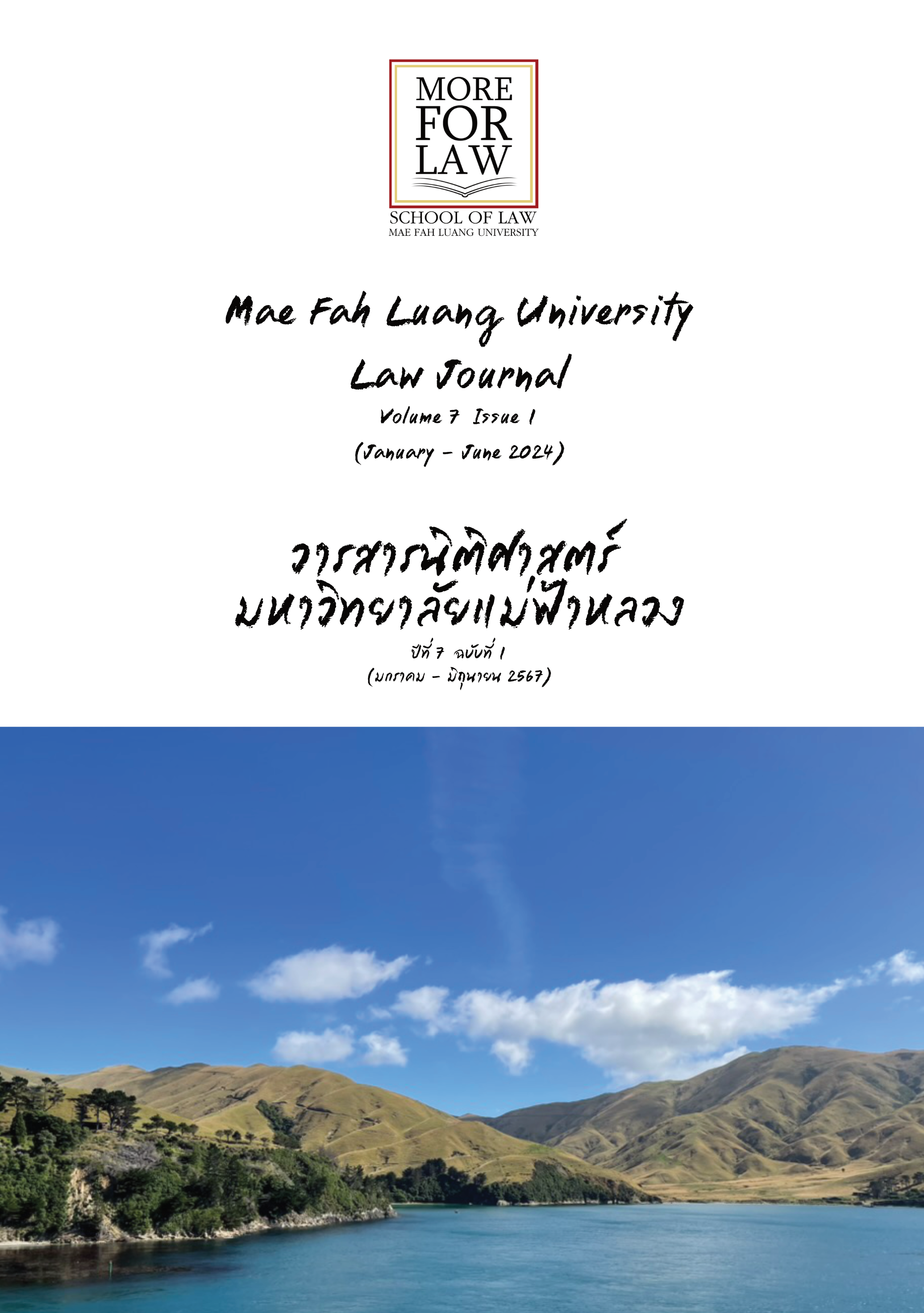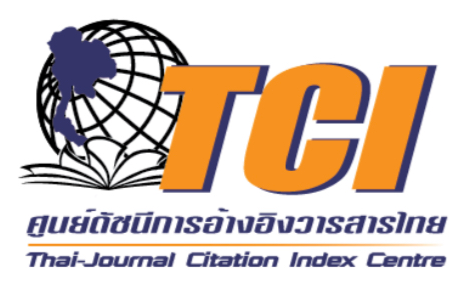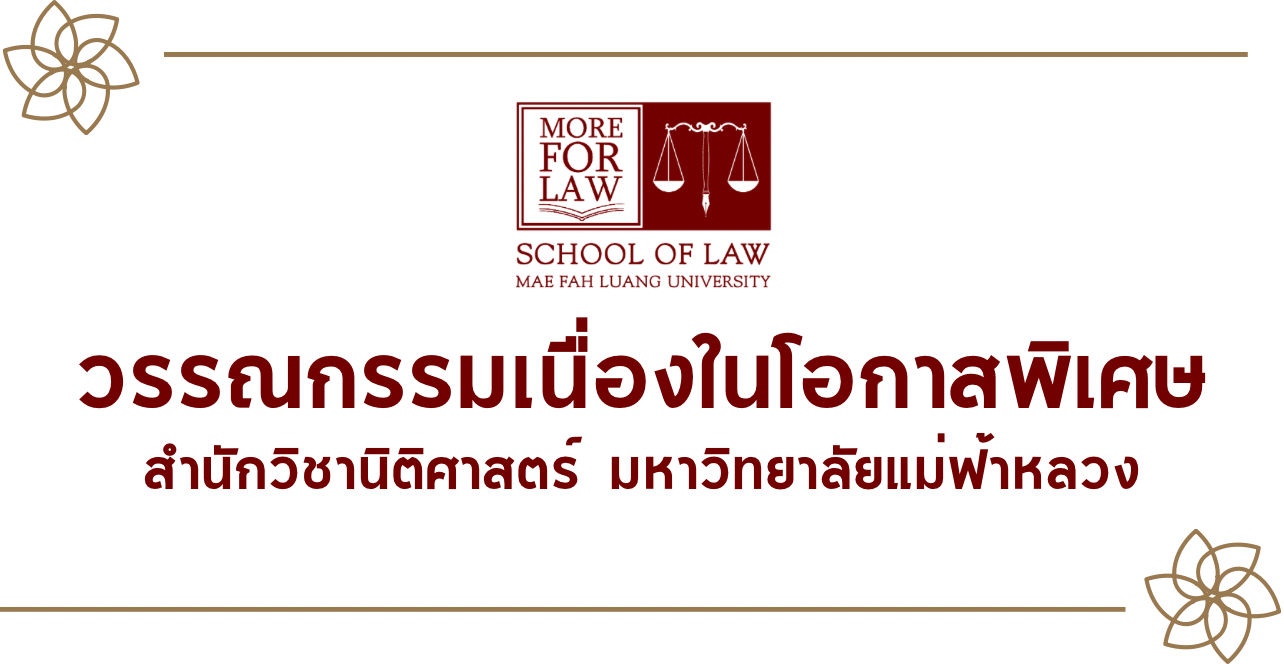Enhancement of Legal Measures for Support the Utilization and Strengthening of the Research and Innovation Ecosystem of Educational Institutions
DOI:
https://doi.org/10.14456/mfulj.2024.5Keywords:
Legal Measures, Research and Innovation, Educational InstitutionsAbstract
The objectives of this research were as follows: 1) To study concepts and theories that support the utilization of research and innovation 2) To examine international law guidelines, such as those provided by WIPO and UNESCO, aimed at promoting the utilization of research and innovation 3) To investigate the legal measures that promote the utilization of research and innovation in three countries: the United States, Japan, and Thailand.4) To analyze and propose appropriate legal measures to support the utilization and strengthen the research and innovation ecosystem in Thai educational institutions. The methodology employed in this research was qualitative, involving data collection through document searches, in-depth interviews, and small group discussions. Additionally, we engaged with 15 key informants, divided into three groups: representatives of government funders, representatives of institutions and inventors, and representatives of the private sector. The results of this research revealed the following: 1Concepts and theories supporting the utilization of research and innovation span various areas, including an institute's mission and its role in social change, sharing benefits, open innovation, the knowledge-based economy, the innovation ecosystem, economic theory, and the natural rights theory 2) Furthermore, WIPO offers guidelines for universities and educational institutions to support economic growth through research and innovation, along with improvements to intellectual property management systems. UNESCO, on the other hand, emphasizes educational guidelines for member countries that integrate learning and contribute to community and social benefits.3) In the same spirit of law, the United States, Japan, and Thailand use law to support the utilization and strengthening of research and innovation. However, there are some limitations in Thai legal measures, such as procedural non-compliance and a lack of necessary legal procedures in research and innovation utilization. Additionally, government agencies and their policies regarding research and innovation utilization still lack clear guidelines.
4) The analysis of these findings has led to recommendations for legal measures aimed at supporting the utilization and strengthening of the research and innovation ecosystem within educational institutions in Thailand. These recommendations include amendments to the Research and Innovation Utilization Promotion Act B.E. 2021, guidelines for secondary legal development under the Research Utilization and Innovation Promotion Act 2021, and guidelines for the development of agencies and policies that promote and supervise the utilization of research results and innovations.
Downloads
References
กรมทรัพย์สินทางปัญญา, ความรู้กฎหมายทรัพย์สินทางปัญญาเบื้องต้น [ออนไลน์], แหล่งที่มา: http://www.ipthailand.go.th/images/2562/Suppress/lesson1.pdf
จักรกฤษณ์ ควรพจน์, แนวคิดเกี่ยวกับทรัพย์สินทางปัญญา, วารสารสุโขทัยธรรมาธิราช, ปีที่ 3 ฉบับที่ 1 (มกราคม-เมษายน 2543).
ชนิตา รักษ์พลเมือง และคณะ, รายงานการวิจัย เรื่อง การส่งเสริมทรัพย์สินทางปัญญาในสถาบันการศึกษาของญี่ปุ่น, (กรุงเทพมหานคร: สำนักงานเลขาธิการสภาการศึกษา, 2550).
พิริยะ ผลพิรุฬห์, เศรษฐกิจสร้างสรรค์กับการพัฒนาประเทศไทย, วารสารเศรษฐศาสตร์ปริทรรศน์ สถาบันบัณฑิตพัฒนบริหารศาสตร์, ปีที่ 1 ฉบับที่ 3 (มกราคม 2556).
วลัยวรรณ มธุรสปรีชากุล และเกวลิน ต่อปัญญาชาญ, โครงการศึกษาแนวทางการส่งเสริมการพัฒนาสิทธิบัตรร่วมเพื่อสนับสนุนระบบนิเวศนวัตกรรม, (กรุงเทพมหานคร: สำนักงานนวัตกรรมแห่งชาติ (องค์การมหาชน), 2564).
สมบัติ กุสุมาวลี, เศรษฐกิจสังคมบนฐานความรู้ฐานสำคัญของเศรษฐกิจเชิงสร้างสรรค์ [ออนไลน์], แหล่งที่มา https://www.tpa.or.th/publisher/pdfFileDownloadS/QM155_p108-111.pdf
สำนักงานสภานโยบายการอุดมศึกษา วิทยาศาสตร์ วิจัยและนวัตกรรมแห่งชาติ, สอวช. เผยตัวเลขการลงทุน R&D ไทย รอบสำรวจปี 62 เติบโตพุ่ง 1.11% ต่อจีดีพี คาดหลังประเทศเผชิญโควิด ตัวเลขปรับตัวลดลงอยู่ที่ 1.09% ต่อจีดีพี จากภาคเอกชนลดงบประมาณการลงทุน ชี้ ปี 70 แตะเป้า 2% ได้ หากรัฐขึ้นมาเป็นผู้นำอัดมาตรการส่งเสริมการลงทุนเต็มสูบ [ออนไลน์], แหล่งที่มา: https://www.nxpo.or.th/th/4885/
อัครวิทย์ กาญจนโอภาษ, การบรรยายหัวข้อ “กฎหมายและกฎระเบียบเกี่ยวกับการจัดการงานวิจัยที่ควรรู้” [ออนไลน์], แหล่งที่มา http://www.arda.or.th/datas/file/1494926333.pdf
Association of University Technology Managers, “Landmark Law Helped Universities Lead the Way [Online], Source:https://autm.net/about-tech-transfer/advocacy/legislation/bayh-dole-act
AUTM, Making a Better World: AUTM’s 2022-2024 Strategic Plan [Online], Source: https://autm.net/about-autm/mission-history/strategic-plan
AUTM, “Technology Transfer Courses for Professional” Development [Online], Source: https://autm.net/careers-and-courses/professional-development-courses/autm-university/2022/ops-compliance
Kittiya Upathum, Bayhdole Act กับสิทธิของนักวิจัย [Online], Source: https://idgthailand.com/bayh-dole-act-02/
UNESCO, Universities as Centers of Research and Knowledge Creation: An Endangered Species? Summary Report, In Colloquium on Research and Higher Education Policies UNESCO, 29 November – 1 December 2006 Paris [Online], Source: https://unesdoc.unesco.org/ark:/48223/pf0000151957?2=null&queryId=N-EXPLORE-18b1b734-c70b-49fb-918a-f28576482ff
WIPO, The Role of IP in research and teaching (November 2019) Special Issue 11/2019 [Online], Source: https://www.wipo.int/wipo_magazine/en/2019/si/article_0010.html
Downloads
Published
How to Cite
Issue
Section
License
Copyright (c) 2024 Mae Fah Luang University Law Journal

This work is licensed under a Creative Commons Attribution-NonCommercial-NoDerivatives 4.0 International License.






